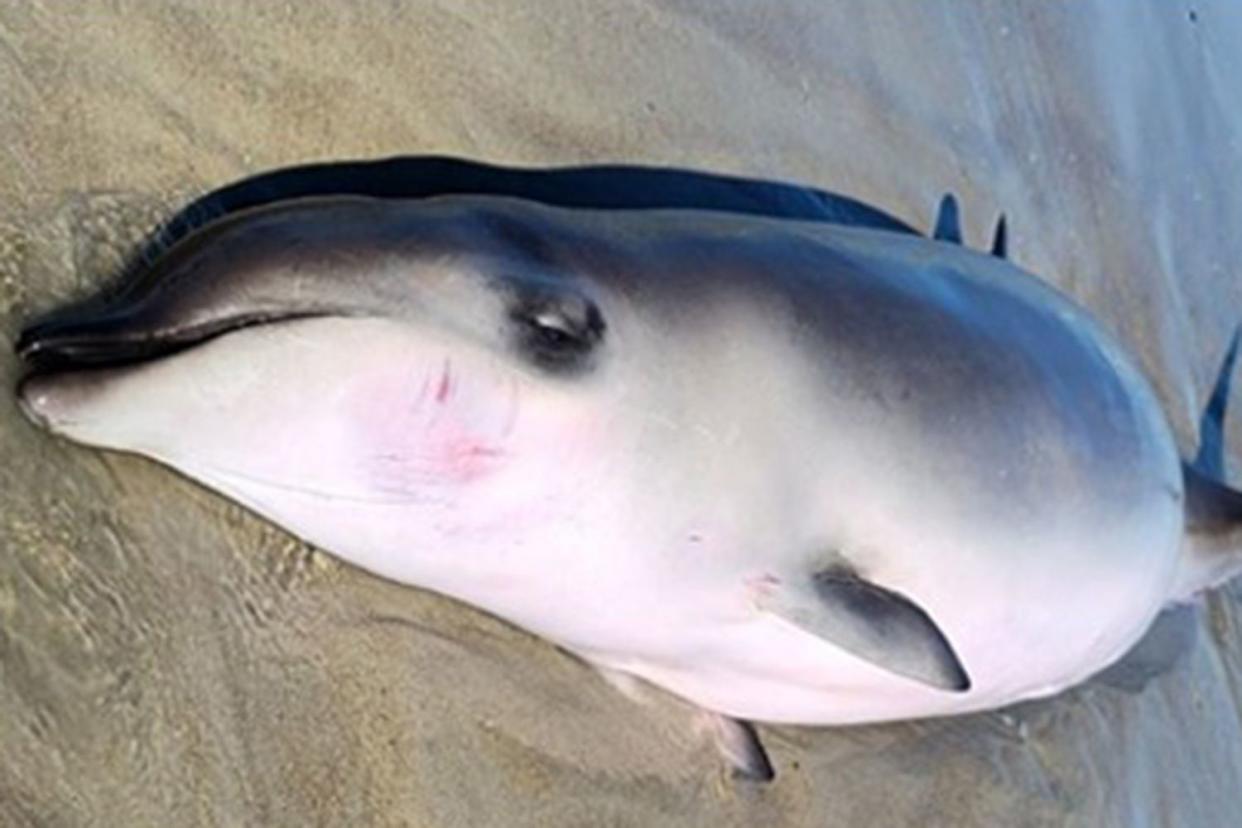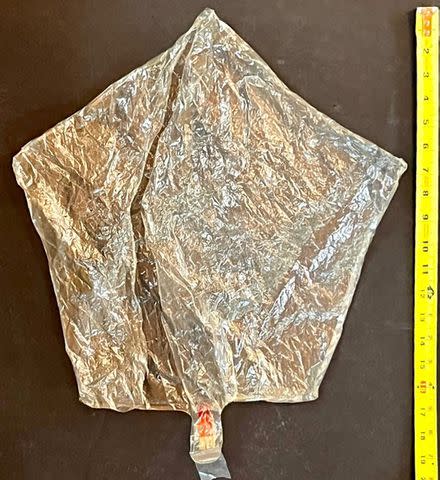Whale Calf Washes Up Dead on North Carolina Beach After 'Ingestion of Plastic' Balloon
The young female calf was still nursing at the time of her death, according to those that performed the animal's necropsy

CMAST - NC State University Center for Marine Sciences and Technology
An female Gervais' beaked whale calf washed up on the shore of Emerald Isle, North Carolina on Oct. 30A young female Gervais' beaked whale washed up on the shore of a North Carolina beach last week, and scientists later discovered the animal's death was linked to human interaction.
On Oct. 30, beachgoers reported that a whale was in shallow waters in Emerald Isle, North Carolina. When experts from the North Carolina State University Center (NCSU) for Marine Sciences and Technology arrived at the scene, they discovered the whale calf had died, according to a statement from the organization.
The whale was examined postmortem the following day by students from NCSU and other nearby universities, including the University of North Carolina(UNC)-Wilmington, Duke University, and UNC-Chapel Hill.
The calf measured 10 foot 9 inches in length at the time of her death and was determined to be a nursing calf based on the milk discovered in her stomach.
In addition to the milk, a "pentagonal plastic balloon was discovered" in the whale's stomach. It was "crumpled up and obstructing the passage" in her gastrointestinal tract and was determined to be the cause of death.
The NC State University Center team shared their tips to help avoid similar situations occurring in the future, advising residents to consider using "biodegradable alternatives" for more eco-friendly decorations and to minimize the risk to wildlife.
They also advised residents to remove any gasses from balloons before discarding them to help avoid them "getting 'loose' and posing an unnecessary and tragic danger, causing wildlife to starve and perish over time, as in the case of this unfortunate Gervais' beaked whale."

CMAST - NC State University Center for Marine Sciences and Technology
NC State University Center for Marine Sciences and Technology shared a photo of the balloon a young whale calf ingested that led to her deathRelated: 35-Ft. Humpback Whale Washes Up on New York Beach: 'This Is a Sad Day'
Gervais' beaked whales are a lesser-known species of beaked whales, according to NCSU, as "little is known" about their social structure and history. The species is not generally near the shore as its habitat is around the ocean's continental shelf, and they live most of their lives underwater.
Beaked whales are generally known to be large, deep-diving marine mammals.
Never miss a story — sign up for PEOPLE's free daily newsletter to stay up-to-date on the best of what PEOPLE has to offer, from celebrity news to compelling human interest stories.
Roughly 125 marine mammals wash up on the shores of North Carolina beaches annually, according to NCSU, including whales, dolphins, porpoises, seals, and manatees.
The causes vary from natural reasons — like infectious disease, parasites, and starvation — to human interactions, like "entanglement in fishing gear" and ingestion of plastic.
For more People news, make sure to sign up for our newsletter!
Read the original article on People.
